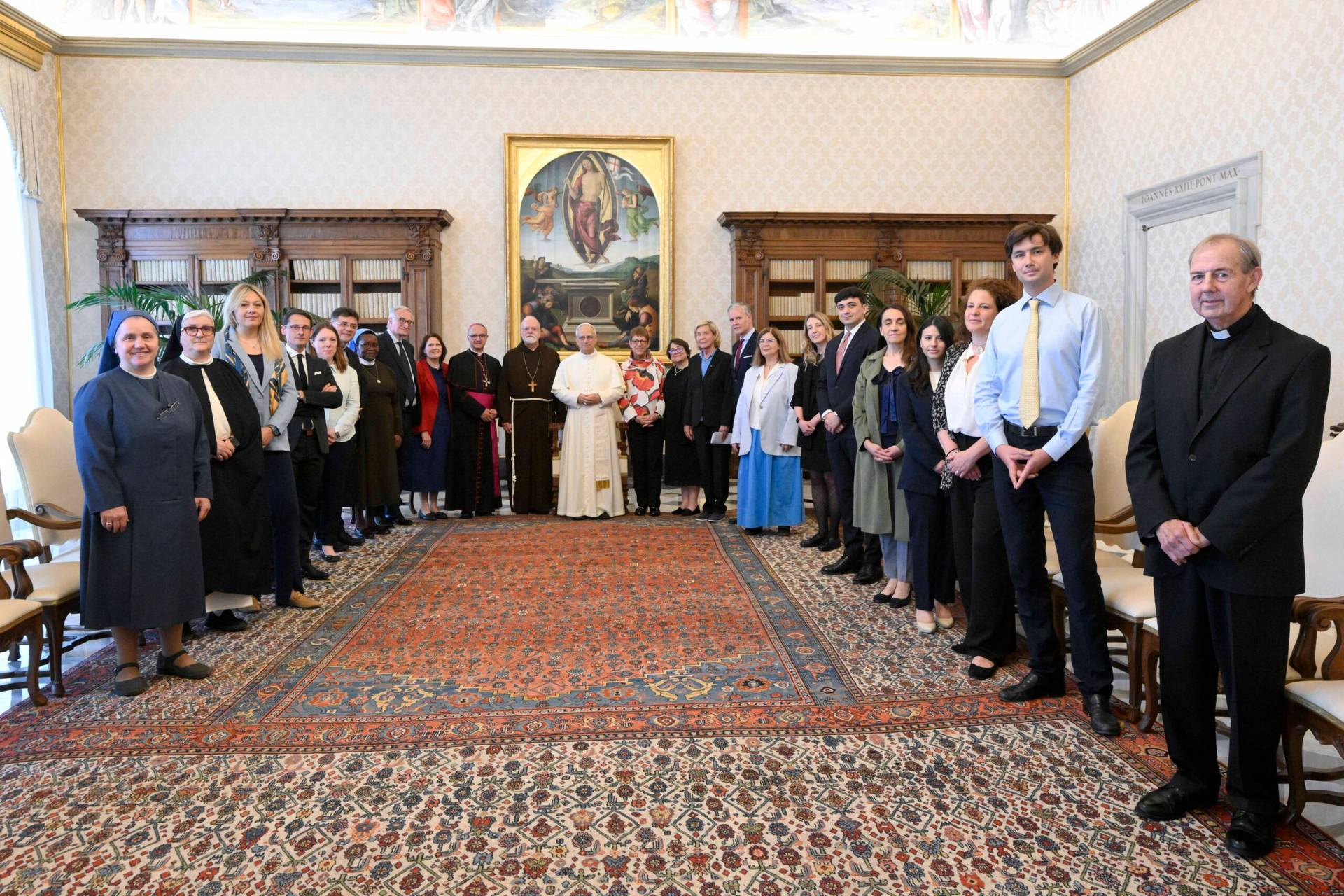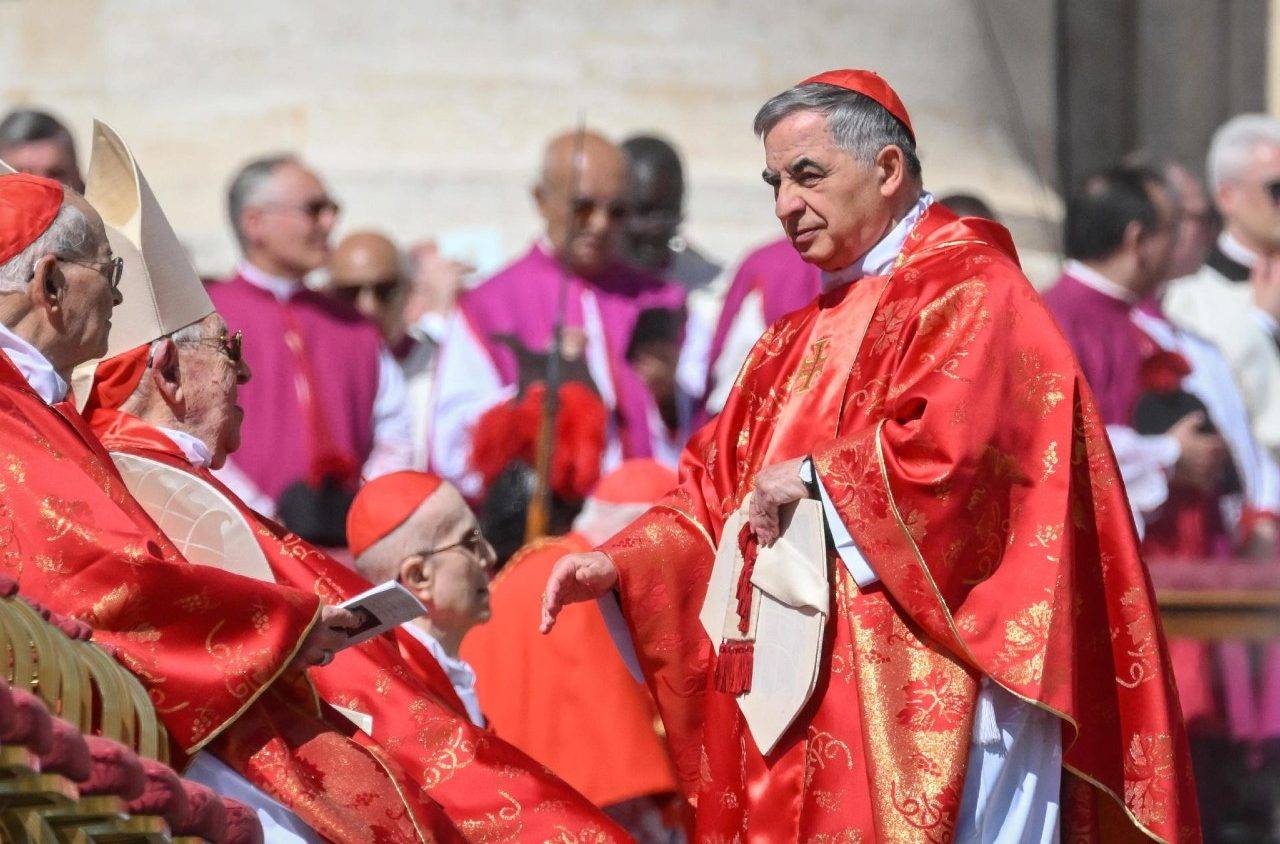ROME – After two years of upheaval and angst over Pope Francis’s document on the family Amoris Laetitia, and its cautious opening to Communion for the divorced and civilly remarried, some in the pro-Amoris camp have tried a different tack. Rather than pressing the argument, they’re suggesting its importance has been inflated all along.
Call it, for lack of a better phrase, the “no big deal” strategy – although, to be honest, it’s not clear how far it might go, because at times even some of its most prominent exponents don’t really seem to have their hearts in it.
That was the spirit of Cardinal Walter Kasper’s remarks Tuesday night during a presentation of his new book The Message of Amoris Laetita: A Fraternal Discussion, originally published in German, which recently came out in Italian translation. The presentation was held at the headquarters of Vatican Radio in Rome.
(By the standards of Kasper’s prodigious theological writing over the years, the new volume is remarkably slim, checking in at just 80 pages in the Italian version.)
In many ways, Kasper has been the prime mover in reopening the longstanding debate in Catholicism over the issue of Communion for the divorced and remarried, which at one time was believed to have been settled with a 1994 document from the Congregation for the Doctrine of the Faith to Kasper and two other German prelates, basically delivering a firm “no.”
Pope Francis seemed to tip his hand early on in the opposite direction, however, by picking Kasper to address a meeting of cardinals on the subject before the pontiff’s two Synods of Bishops on the family got underway, and the idea even became known as the “Kasper Plan” during the synod debates.
Yet Kasper, who turned 85 on Monday, seemed on Tuesday night to express puzzlement over how much has been made of the issue, on at least three fronts.
First, he suggested, too much attention in the discussion over Amoris Laetitia has been concentrated in chapter 8, where Francis deals with the Communion issue in a footnote, calling the attention on the point “reductionistic.”
The situation of the divorced and remarried, he said, is certainly “a” problem, but it’s not “the” problem when it comes to the issues facing families today.
On that score, Kasper drew support from Italian Archbishop Vincenzo Paglia, President of the Pontifical Academy for Life, who was on hand for the presentation, and who said he’s felt the same frustration.
“Sometimes I feel as if our discussions in Rome can’t see past this point, and meanwhile families in today’s world are taking blows every day,” he said.
(Paglia also presented Kasper with a birthday present in front of the audience, a large icon of the Virgin Mary.)
Second, Kasper insisted, whatever else the debate over Amoris is about, it’s definitely not a question of heretics or heresy.
“Heresy means opposing, tenaciously opposing, a defined dogma,” he said. “I don’t believe Pope Francis had any intention of presenting a new dogma.” Instead of rival heresies, Kasper insisted, what the Church has seen recently is a matter of “various opinions being expressed.”
He did, however, concede that it’s been at times a fairly pointed exchange of views, saying he’d tried to pen the new book in a “non-polemical way” because “as a bishop and a cardinal, I feel a responsibility for the peace of the Church.”
Third, Kasper suggested that the opening to Communion created by Amoris really isn’t the doctrinal or sacramental thunderclap it’s been made out to be.
“It’s in full concordance with the tradition,” he said Tuesday night, “above all those of Thomas Aquinas and the Council of Trent.” Among other things, Kasper noted that the 16th century council taught that the act of receiving the Eucharist has the power to forgive sins, and also that St. Thomas recognized a clear distinction between a general norm and its concrete application.
Kasper also said that he had spoken in the past with Dominicans, meaning members of St. Thomas’s own religious order, such as Cardinal Christoph Schönborn of Vienna and the late Cardinal George Cottier, who served as theologian of the Papal Household during three papacies, who, he said, agreed with his reading of Aquinas.
“It’s not something new, it’s a return to the real tradition of Thomas Aquinas,” he said. “You can’t absolutize this neo-Thomism that derived from scholasticism.”
(“Scholasticism” refers to the philosophical and theological school around Aquinas, and “neo-Thomism” to what critics saw as an overly rigid and simplified version of that tradition in the 19th and 20th centuries.)
On that front too, Paglia made a similar point, arguing that if there’s been an upheaval in the Church’s treatment of the divorced and remarried, it came not in Amoris but in St. Pope John Paul II’s 1981 document Familiaris Consortio, and its insistence that believers in such situations are not “excommunicated” but rather should be fully integrated into ecclesiastical life.
Paglia recalled that just 25 years before Familiaris, in a well-known Italian case, a bishop was convicted of defamation in an Italian court for calling a couple who had married in a civil rite “public sinners and concubines.” He was ordered to pay a fine, but the conviction was overturned on appeal. Paglia pointed to the episode as example of the attitudes that John Paul’s injunction shattered.
“If people had truly understood what was written [in Familiaris Consortio],” Paglia said, “it would have been a revolution in the Catholic Church.”
It remains to be seen if the “no big deal” tactic will succeed, in part because it wasn’t entirely clear Tuesday night that Kasper’s sold on it himself. At one point he picked up on a recent phrase from Italian Cardinal Pietro Parolin, the pope’s Secretary of State, that Amoris represents a “paradigm shift.”
Noting that the phrase “paradigm shift” comes from writer Thomas Kuhn and originally referred to significant scientific advances, he said it’s like what happened when Newton’s essentially mechanistic understanding of physics was replaced by Einstein’s Theory of Relativity.
“The shift didn’t reject Newton’s theories,” Kasper said, “but it included them in a larger and ampler understanding of things.”
Kasper also became slightly impassioned discussing the personal background he brings to the Communion question, saying he sometimes has the impression that some of the people taking part in the debate “must never have sat in a confessional.”
“I was ordained in 1957, well before Vatican II,” he said. “I’ve spent hours and hours in the confessional listening to these people, many of whom were crying. You have to listen to people.”
Whatever one makes of Kasper’s argument, it was hard to walk away with the impression that anyone who so obviously speaks out of deep personal conviction – not to mention, of course, comparing Amoris to one of the great scientific ruptures of all time – could ever truly regard it as just another day at the office.


















